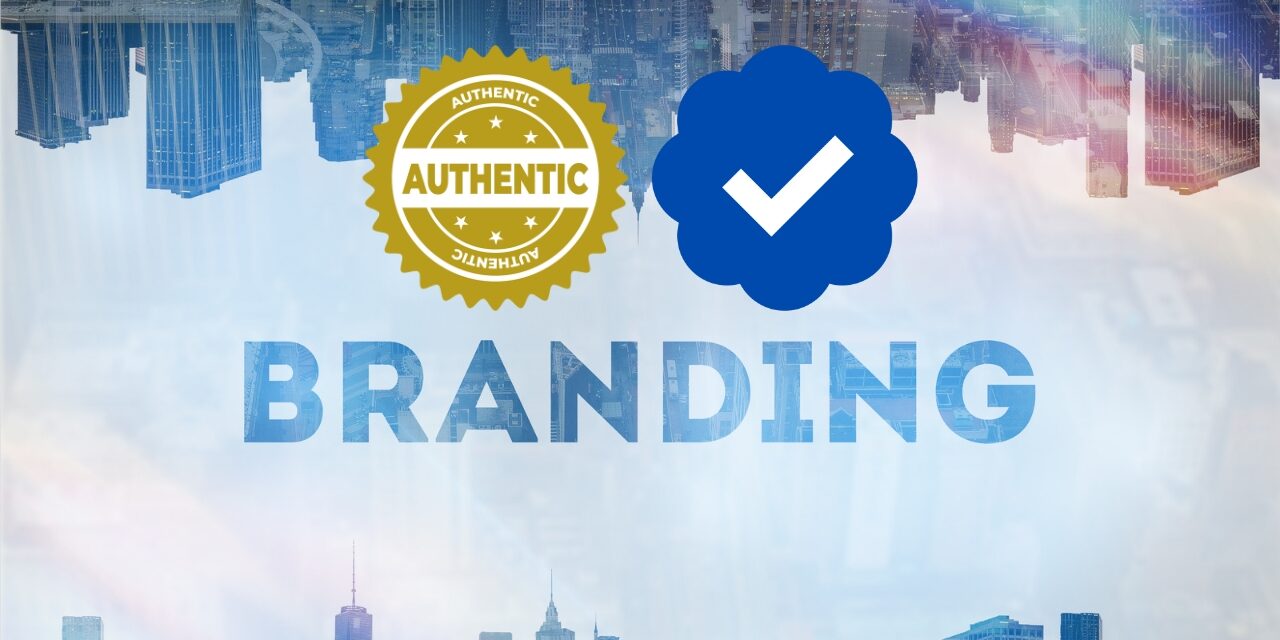Introduction
As a digital marketing expert and a passionate believer in the power of authenticity, I’ve observed firsthand the impact that authenticity can have on a brand’s success. I’ve seen businesses flourish and gain loyal customers, all because they dared to be genuine, transparent, and true to themselves. In a world dominated by digital media, where every detail is just a click away, authenticity isn’t just a ‘nice-to-have,’ it’s an absolute necessity.
This brings me to the central theme of this blog post: “The Importance of Authenticity in Branding: How to Keep it Real.” This topic is particularly close to my heart as I’ve had the privilege to witness its magic unfold in the real world, across a wide spectrum of industries. Today, however, I want to specifically address coaches who are new to the field of digital marketing.
Coaching is an intimate process, one that requires trust, connection, and a genuine understanding between the coach and the client. Hence, when it comes to branding for coaches, authenticity is more important than ever. In this blog post, my goal is to guide you, as a coach, through the intricacies of authenticity in branding, so you can leverage this powerful tool to connect with your audience, build trust, and elevate your coaching business to new heights.
Welcome aboard, let’s embark on this exciting journey of discovering how authenticity can transform your brand’s image and catapult your digital marketing efforts to success.
Understanding Authenticity in Branding
Authenticity in branding goes beyond a mere buzzword. It is the practice of being genuine, honest, and true to your brand’s core values, mission, and ethos. It’s about having a transparent and consistent message that resonates with your audience because it stems from your true identity, rather than fabricated marketing strategies. When your audience perceives your brand as authentic, it means they see your brand as reliable, respectful, and real.
To better illustrate this concept, let’s consider some examples. Patagonia, a popular outdoor clothing company, exemplifies authenticity in its commitment to environmental sustainability. It weaves its brand around the mission of saving the planet, reflected in everything they do – from sourcing materials to creating their products. Similarly, TOMS shoes built its brand on the concept of ‘One for One’ – for every pair of shoes sold, a pair is donated to a person in need. This authentic commitment to social responsibility has won them a loyal customer base.
For coaches, the authenticity could be in the form of personal experiences, unique approaches to coaching, or a deep commitment to specific outcomes for your clients. When clients see that you’re true to your word and consistent in your actions, they’ll perceive your brand as authentic.
The reason authenticity matters so much in branding is that it fosters trust. In an age where consumers are exposed to endless streams of information and a myriad of choices, they tend to gravitate towards brands they can trust – brands that are real, transparent, and genuine. Authenticity becomes the cornerstone of a trusting relationship between your brand and your audience. When trust is established, it’s easier for your audience to choose you over competitors, recommend you to others, and stay loyal to your brand over time.
As a coach, authenticity in your branding assures your clients that you genuinely care about their growth and success. It reflects your commitment to your coaching practice and gives clients a reason to choose and stick with you. After all, coaching is about transformation, and transformation begins with trust. Authentic branding can help you build that trust.
The Role of Authenticity in Digital Marketing for Coaches
As a coach, authenticity is pivotal to your digital marketing efforts. While coaching is traditionally about in-person interactions and building relationships, in today’s digital age, your online presence plays a significant role in shaping your brand image and attracting clients. Here, authenticity can act as a magnet that attracts your ideal clients and cultivates long-lasting relationships.
In the digital world, your authenticity is showcased through your website, social media channels, email communications, and online content. Each interaction provides an opportunity to share your unique story, communicate your values, and demonstrate your commitment to helping your clients. This amplification of authenticity through digital channels has several key benefits:
1. Relevance and Connection:
- Authenticity can help you stand out in the crowded digital space by making your brand relevant to the right audience. By being true to yourself and your brand, you naturally attract individuals who resonate with your values and approach, creating a deeper connection.
2. Trust and Credibility:
- An authentic brand is a trusted brand. When your online presence consistently reflects your true self and values, you earn the trust of your audience, increasing your credibility as a coach.
3. Community Building:
- Authenticity in digital marketing can help you build an engaged online community. By sharing your journey, challenges, successes, and learnings, you not only humanize your brand but also encourage your audience to engage with you on a deeper level.
4. Client Retention:
- Authentic brands foster loyalty. When clients feel a strong connection with your brand and trust in your services, they’re more likely to stick around, leading to higher client retention.
Let’s consider a real-life example. Brene Brown, a well-known research professor and bestselling author, has used authenticity to build a strong personal brand around her coaching and speaking business. She shares her research, personal stories, and views on vulnerability and courage, creating an authentic digital presence that resonates with her audience. Her authentic branding has not only built trust and loyalty among her followers but also significantly amplified her reach and impact.
As a coach, your journey, your experiences, your values, and your unique approach to coaching are what make your brand authentic. Embrace them, communicate them, and watch as your authentic digital brand paves the way for your coaching success.
The Importance of Authenticity in Branding
In our digital age, where consumers are bombarded with information and advertising, authenticity in branding serves as a beacon that guides your audience to your brand. Here’s why authenticity is of utmost importance:
1. Influences Consumer Behavior:
- Authenticity strongly influences your audience’s decision-making process. People tend to support and buy from brands they perceive as authentic because they feel a sense of trust and emotional connection. As a coach, the more authentic you are, the more likely potential clients are to choose you over other coaches.
2. Enhances Brand Reputation:
- An authentic brand builds a positive reputation. When you consistently communicate your brand’s genuine values, mission, and stories, you establish a strong and positive perception in the minds of your audience. This favorable reputation can generate word-of-mouth recommendations, helping you reach and attract more clients.
3. Differentiates Your Brand:
- In a saturated market, authenticity can be your differentiating factor. Many coaches might offer similar services, but your authenticity—your unique story, experiences, values, and approach—sets you apart from the rest. It’s what makes your brand unique and memorable in the eyes of potential clients.
4. Builds Brand Loyalty:
- Authenticity fosters loyalty. When clients resonate with your authenticity, they develop a deeper emotional connection to your brand, often turning into loyal supporters and even advocates for your services.
5. Ensures Longevity:
- Authentic brands stand the test of time. Trends may come and go, but authenticity never goes out of style. When your brand is grounded in authenticity, it’s equipped to evolve while remaining true to its core values and mission, ensuring its longevity.
Authenticity in branding isn’t just about being truthful; it’s about being consistent in your truthfulness across all touchpoints of your brand. It’s about letting your audience know who you are, what you stand for, and how your services can genuinely help them. As a coach, your authenticity is your superpower—it’s what transforms your brand from just another coaching service into a trusted guide and partner in your clients’ personal or professional growth journeys.
Risks of Inauthenticity
While authenticity can significantly enhance your brand and attract loyal clients, inauthenticity can be detrimental to your reputation and success as a coach. Here are some of the risks associated with inauthentic branding:
1. Damaged Brand Reputation:
- When your brand is perceived as inauthentic, it tarnishes your reputation. In the digital age, where information spreads quickly, incidents of inauthenticity can leave a lasting negative impression on both current and potential clients.
2. Loss of Trust:
- Trust, once lost, is challenging to regain. If you promise something you can’t deliver or portray an image that’s not true to your values and capabilities, it can result in a breach of trust. This not only affects your relationships with existing clients but also discourages potential clients.
3. Reduced Client Engagement:
- An inauthentic brand struggles to create a genuine connection with its audience. This can lead to decreased client engagement, as your audience may not resonate with or feel motivated to engage with a brand that lacks authenticity.
4. Decreased Competitive Advantage:
- Inauthenticity diminishes your unique value proposition, making your brand blend into the background in a competitive market. It prevents you from standing out and offering something truly unique and genuine to your clients.
5. Client Churn:
- In the long run, inauthenticity can lead to a high client churn rate. When clients feel they’ve been misled or can’t connect with your brand, they’re likely to seek services elsewhere.
Consider the case of a popular health and fitness influencer who faced backlash for promoting weight loss products without using them personally. The inauthentic promotion not only damaged the influencer’s reputation but also caused loss of followers and trust.
As a coach, your clients rely on your expertise, experience, and integrity to guide them through their personal or professional growth journeys. Any signs of inauthicencity could undermine your clients’ trust in your guidance, and consequently, their commitment to your coaching program.
It’s crucial to avoid the pitfalls of inauthenticity by maintaining transparency, honoring your commitments, and being true to your values and story. Remember, your authenticity is your most potent tool in building a strong, trustworthy brand that clients respect and gravitate towards.
Building an Authentic Brand: A Step-by-Step Guide for Coaches
Building an authentic brand may seem challenging, but with careful consideration and consistent effort, you can cultivate a brand that truly reflects your values, story, and coaching approach. Here’s a step-by-step guide to help you build an authentic brand as a coach:
1. Identifying Your Unique Selling Proposition (USP):
- Start by identifying what makes your coaching approach unique. Is it your methodology, your personal experiences, your success stories, or your areas of specialization? Your USP is what sets you apart from other coaches and should form the foundation of your brand.
2. Defining Your Values and Mission:
- What do you stand for as a coach? What is your mission? Your values and mission should guide every decision you make—from the clients you choose to work with, to the way you communicate your brand.
3. Incorporating Your Personal Story:
- Your personal story is an integral part of your brand. It makes your brand relatable and helps build a connection with your audience. Share your journey, your challenges, your achievements, and how they shaped your coaching approach.
4. Maintaining Consistency:
- Consistency is key to building an authentic brand. From your website to your social media channels, your message and voice should be consistent. Consistency helps reinforce your brand identity and creates familiarity with your audience.
5. Engaging with Your Audience Authentically:
- Engage with your audience in a meaningful and genuine way. Respond to comments, share user-generated content, and invite your audience to engage with your brand. Show appreciation for their support and feedback.
6. Regularly Reassessing and Refining Your Brand:
- As you grow as a coach, your brand may also evolve. Regularly reassess your brand to ensure it aligns with your current values, mission, and approach. Be open to refining your brand as necessary.
Building an authentic brand is not a one-time task, but an ongoing process. It requires self-reflection, a clear understanding of your unique value, and a commitment to consistently portraying your genuine self. As you follow these steps, remember that your goal is not just to create a brand that looks good, but one that genuinely reflects who you are and what you stand for as a coach. This is what attracts, engages, and retains your ideal clients.
Leveraging Social Media for Authentic Branding
Social media is a powerful tool for showcasing your authenticity. It offers you a platform to connect with your audience on a personal level, share your story, and communicate your values. Here’s how you can leverage social media to build an authentic brand:
1. Share Your Story:
- Use social media to share your journey, experiences, and insights. This not only builds a personal connection with your audience but also helps them understand your approach to coaching.
2. Show Behind-the-Scenes:
- Social media is the perfect platform to show what goes on behind the scenes of your coaching practice. Whether it’s the preparation for a session, a snippet from a coaching call, or your daily routine, these glimpses into your workday humanize your brand and help your audience understand what working with you would be like.
3. Engage with Your Audience:
- Use social media to engage with your audience. Respond to their comments, answer their questions, and participate in discussions. This two-way interaction shows your audience that you’re interested in them and value their feedback.
4. Create Authentic Content:
- From blog posts to Instagram stories, ensure your content aligns with your values, mission, and personality. Avoid creating content solely for the sake of trends or likes. Remember, your content should add value to your audience and reflect your authentic self.
5. Use Live Videos:
- Live videos, such as Facebook Live or Instagram Live, allow you to connect with your audience in real-time. You can use live videos to share your insights, answer questions, or discuss relevant topics. This unedited, real-time interaction helps build trust and authenticity.
6. Collaborate with Authentic Influencers:
- Collaborate with influencers who align with your values and mission. This not only amplifies your reach but also strengthens your authenticity by association.
In today’s digital age, your audience likely interacts with your brand first through social media. Hence, it’s crucial to ensure your social media presence is a true reflection of your brand. Use these strategies to leverage social media for authentic branding, and watch as your audience grows, engages, and connects with your brand in a meaningful way.
The Power of Authentic Content in Branding
Creating authentic content is an essential component of authentic branding. Authentic content is content that reflects your brand’s values, mission, and voice. It’s real, it’s genuine, and it’s designed with your audience in mind. Here’s why authentic content is so powerful in branding:
1. Builds Trust:
- Authentic content helps build trust with your audience. It shows your audience that you understand their needs and are dedicated to providing value. When your content is genuine and helpful, it builds a strong relationship with your audience, which can lead to higher client conversion and retention rates.
2. Engages Your Audience:
- Authentic content is relatable and engaging. When your audience resonates with your content, they’re more likely to engage with it—whether that’s by liking, commenting, sharing, or even reaching out to you for your services.
3. Enhances SEO:
- Authentic content that provides value to your audience can also boost your search engine optimization (SEO) efforts. Search engines prioritize high-quality, relevant content. When your content is authentic and valuable, it’s more likely to rank higher in search results, increasing your brand visibility.
4. Amplifies Your Brand:
- Authentic content amplifies your brand by reinforcing your brand message and values. It provides you with the opportunity to showcase your expertise, express your values, and communicate what makes you unique as a coach.
5. Fosters Loyalty:
- Consistently delivering authentic content that adds value to your audience can foster brand loyalty. It keeps your audience coming back for more, helping you build a community of loyal followers and clients.
Authentic content can come in various forms – blog posts, social media posts, videos, podcasts, newsletters, etc. Regardless of the format, the key is to ensure your content is true to your brand and provides value to your audience. Whether you’re sharing a personal story, giving expert advice, or discussing a relevant topic, your content should be a genuine reflection of you and your coaching brand.
Remember, the most powerful content comes from a place of authenticity. So, be true to your brand, focus on serving your audience, and let your authenticity shine through your content.
Case Study: Authentic Branding in Action
To fully grasp the impact of authenticity in branding, let’s look at a real-life example – Tony Robbins, the renowned life and business strategist.
Background
- Tony Robbins, once an ordinary person facing many struggles in life, transformed his destiny through sheer determination, learning, and application of personal growth techniques. Today, he is one of the world’s leading coaches, known for his dynamic personality, compelling storytelling, and high-energy seminars.
Authenticity in Branding:
- Robbins’ brand is centered around his authentic self – his story, his values, and his passion for helping others achieve their full potential. He is open about his challenging upbringing and how it fueled his passion for personal development, which makes him relatable to many who are facing their own struggles.
Social Media and Authentic Content:
- Tony Robbins effectively leverages social media to share authentic content. From powerful quotes and motivational videos to personal anecdotes and client testimonials, each piece of content reinforces his brand’s authenticity. He often shares behind-the-scenes glimpses into his events, daily life, and work, which further humanizes his brand.
Engagement with Audience:
- Robbins is known for his active engagement with his audience. Whether it’s responding to comments on social media, conducting live Q&A sessions, or engaging with participants during his events, his approachable nature enhances his brand’s authenticity.
Impact:
- Tony Robbins’ authentic branding has helped him build a loyal following worldwide. He has coached millions of people, including celebrities, athletes, and business leaders, and his seminars often sell out.
This case study exemplifies the power of authenticity in branding. Tony Robbins’ authenticity has not only set him apart in a competitive industry but has also helped him create a deep emotional connection with his audience, build an incredibly loyal following, and establish a lasting legacy in the field of personal development.
As a coach, you too can harness the power of authenticity to build your brand, connect with your ideal clients, and make a lasting impact. Whether you’re just starting your coaching journey or looking to enhance your existing brand, remember – your authenticity is your biggest asset. Let it shine in every aspect of your branding.
Conclusion
In the evolving digital landscape, the importance of authenticity in branding cannot be overstated. As a coach, your authenticity is not just an aspect of your brand – it is the heart of your brand. It’s your unique story, your values, your passion, and your approach to coaching that sets you apart from the rest.
Whether it’s through your website, social media channels, content, or client interactions, every touchpoint should communicate your authenticity. When you’re genuine and consistent in your branding, you attract an audience that resonates with your message, engages with your brand, and ultimately, becomes loyal clients.
Building an authentic brand might not be the easiest path – it requires self-reflection, courage to show your genuine self, and consistent effort. But the rewards – a strong reputation, meaningful client relationships, and a loyal community – are certainly worth it.
In your journey to build an authentic brand, remember the words of Oscar Wilde, “Be yourself; everyone else is already taken.” In a world where consumers are seeking transparency and genuineness, your authentic self is your greatest strength. So, embrace your authenticity, let it permeate every aspect of your branding, and watch as your coaching business flourishes.
Call to Action
Now that you have a deeper understanding of the power of authenticity in branding, it’s time to put this knowledge into action.
Begin with a self-reflection. What are your values, and what is your unique story? How can you incorporate them into your brand?
Next, assess your current branding. Are there areas where you can be more authentic? This might be your website copy, social media posts, or even your coaching approach.
Remember, authenticity in branding isn’t achieved overnight. It’s an ongoing process of aligning your brand with your genuine self and ensuring your audience sees and resonates with it.
As you embark on this journey, I’d love to hear about your experiences. Leave a comment below or reach out to me on social media. Share your stories, ask your questions, or simply connect.
If you found this article helpful, consider sharing it with other coaches in your network who might benefit from it. Together, let’s embrace authenticity and revolutionize the coaching industry.
Stay tuned for more articles on effective branding and digital marketing strategies for coaches. Don’t forget to subscribe to our newsletter to get the latest posts delivered directly to your inbox.
Remember, your authentic self is your greatest asset. Embrace it, showcase it, and watch your brand shine.











